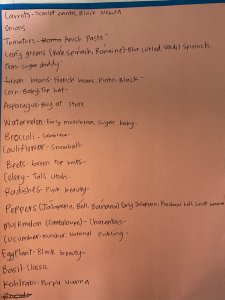flowerbug
Garden Master
Do you live on government property?
no, i live with Mom, the land-owner.
the most i've done to that back field is have it brush hogged once to knock back the thorn bushes, honeysuckles and poplar trees that were starting to get going. i didn't want them spreading further and i didn't want them blocking the light to the vegetable gardens. i figure if i have that done every 5-10yrs that should be good enough.

